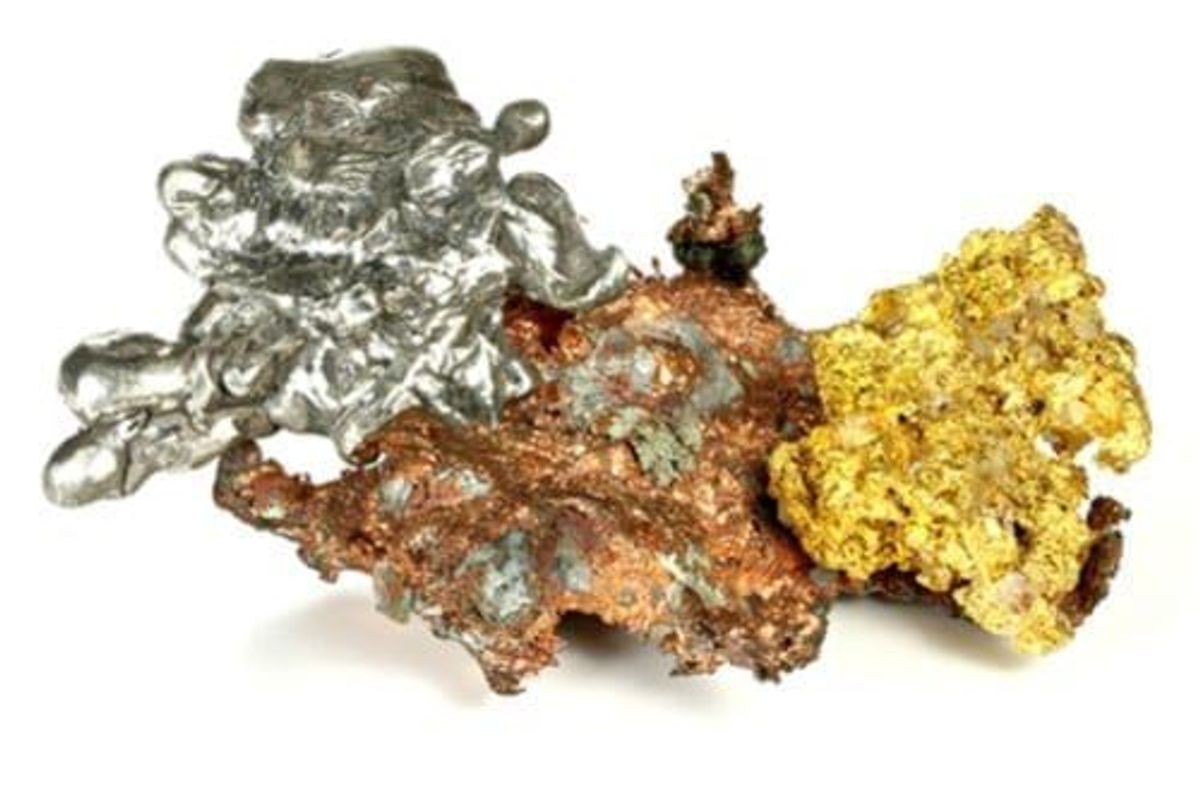Precious Metals Weekly Round-Up: Gold Dips on Fed Policy Statement

Despite posting some gains earlier in the week, the precious metals took some hits following the Fed policy statement and were down on Friday.
Gold and silver retreated on Friday (November 9) following the Fed policy statement that revealed that interest rates would remain unchanged at this time.
As of 9:25 a.m. EST, the yellow metal was trading at US$1,209.90 per ounce, a slip from the gains it made when the US dollar caved under pressure following the US midterm election results. As for the white metal, it was down 1.94 percent, sitting at US$14.20 per ounce as of 9:27 a.m. EST and heading for its biggest weekly fall since the first week in September.
“It is pretty clearly a dollar-related move today, which has happened since the latest decision from the US Fed,” said Capital Economics analyst Ross Strachan.
While the Fed did not change interest rates following the two-day meeting, it remains on track to keep gradually tightening borrowing costs, with the next increase expected in December because of US economic strength, rising inflation and solid jobs growth.
“We are expecting the current Fed tightening cycle to end sooner, by the middle of next year … so we are expecting gold prices to rise to $1,300 by the end of next year,” Strachan added.
For their part, platinum and palladium took hits this week. As of 10:14 a.m. EST, platinum was trading at US$845 per ounce, while palladium landed at US$1,102 per ounce.
Precious metals top news stories
Our top precious metals stories this week featured the a possible joint venture between Barrick Gold (TSX:ABX,NYSE:ABX) and Newmont Mining (NYSE:NEM), a roundup from the New Orleans Investment Conference and Tahoe Resources’ (TSX:THO, NYSE:TAHO) ongoing dispute with Guatemalan protesters over operations at its Escobal mine.
1. Barrick and Newmont May Combine Nevada Gold Operations
Barrick Gold, with soon-to-be merged Randgold Resources (LSE:RRS), is currently in discussions with Newmont Mining to combine their Nevada gold mining operations.
Barrick and Newmont attempted this type of joint venture back in 2014, and market watchers speculated that they would try again following last month’s merger announcement between Randgold and Barrick.
“They have been trying to negotiate for years but Newmont couldn’t agree with Barrick, now that you have a new management team, it’s certain they revived those talks,” a source told Reuters.
2. Gold, Uranium and Bubbles Take Center Stage in New Orleans
Held every year for over four decades, the New Orleans Investment Conference is an opportunity for investors to further their knowledge on the trends driving US and global markets.
This year’s event ran from November 1 to 4, and featured dozens of speakers and exhibiting companies. Gold featured prominently in discussions, but many other topics came up as well, including other metals and commodities, the economy and more.
If you weren’t able to make it to the show, don’t worry. You can also click here to see the full New Orleans Investment Conference playlist on YouTube.
3. Tahoe Sees No End in Sight for Guatemala Troubles
Tahoe Resources’ ongoing dispute with Guatemalan protesters over operations at its Escobal mine, the second-largest silver mine in the world, is showing no signs of concluding, creating uncertainty for the both the miner and its investors.
Both environmental and indigenous opponents of Tahoe’s operations have vowed to ensure that silver is never produced at the mine again and because of this, analysts and market watchers alike are expecting the company to post losses for Q3 on Tuesday (November 6).
If Tahoe finds itself in the red for its third quarter, it will be the miner’s fifth consecutive quarterly loss.
Also in the news
Also making news this week is Gold Fields (NYSE:GFI,JSE:GFI), which released its Q3 results on Friday (November 9) and lowered its production guidance for the year for the South Deep mine in South Africa to 154,000 ounces, which is down from the previously target of 244,000 ounces.
Disputes with the majority union, the National Union of Mineworkers (NUM), have resulted in job loss and striking, which has majorly slowed productivity at Deep South and it only produced 50,000 ounces during the third quarter.
“We don’t know when the strike is going to end, but . . . we’ve assumed that there will be no further production from South Deep for the rest of the year,” stated CEO Nick Holland.
Finally, Orca Gold (TSXV:ORG) announced positive results of a feasibility study (FS) for the Block 14 gold project in Sudan on Thursday (November 8), revealing an expanded project that will produce approximately 230,000 ounces of gold a year with the first seven years of operations.
The FS is based on a six-million-tonne-a-year operation delivering an average of 167,000 ounces of gold a year over a 13.6 year mine life.
“At a production rate of almost 230,000 ounces of gold per annum for the first seven years, a low production cash cost per ounce and a significant exploration upside, this project stands out not only in Africa, but on an international scale,” said Rick Clark, CEO.
Don’t forget to follow us @INN_Resource for real-time news updates!
Securities Disclosure: I, Nicole Rashotte, hold no direct investment interest in any company mentioned in this article.